A Spectacular Upgrade for DC’s LGBTQ+ Community Center
Kimberley Bush, executive director of the DC LGBTQ+ Community Center, shares her vision for the gleaming new space.

“One of the things about me is that I don’t hear ‘No,'” says Kimberley Bush, the executive director of the DC LGBTQ+ Community Center. “I do everything I can to make a ‘Yes,’ whether that means making a place at the table, or pulling the chair out at the table. I’ll always find a way.”
Born and raised in Yonkers, N.Y., Bush grew up extremely close to her parents, especially her mother, whom she describes as her best friend. After her parents divorced when she was in high school, and her mother, who worked at AT&T, was forced to relocate due to her job, the family moved to the D.C. area, where she has spent most of her adult life.
Throughout her life, Bush, who identifies as a queer Black woman, has worked in a variety of fields — a ceramicist, a property manager, and a realtor. She’s served on boards of countless LGBTQ organizations.
One of those organizations was One in Ten, the LGBTQ arts organization that launched the Reel Affirmations Film Festival and The Freedom Festival, a precursor to Capital Pride. Bush worked on the organization’s fundraising efforts, including the “Plant a Seed” program, which raised funds to help up-and-coming LGBTQ filmmakers.
“One in Ten is where I got my first real love of curating and presenting LGBTQ visions and life stories, and celebrating filmmakers, with Reel Affirmations,” she says.
Bush also served as a board member for Del Ray Artisans, an organization that supports new and emerging artists by hosting community-based activities and events. She helped to create the Alexandria Summer Art Market, an event held annually, featuring an assortment of artists displaying their wares.

In April 2014, the board of the DC Center for the LGBT Community brought Bush on board as its director of arts and cultural programming. She led the Center Arts initiative, which was responsible for OutWrite, a literary festival highlighting the work of LGBTQ authors, as well as the DC Theater Festival.
Bush helped revive the Reel Affirmations Film Festival (which had been on a hiatus following the dissolution of One in Ten) while also starting a monthly LGBTQ film series. She launched the Center Arts Gallery, which exhibited the works of LGBTQ artists at the Center, and the “Arty Queers” program, an indoor LGBTQ art market for artists to sell their works.
In October 2019, following the departure of then-executive director David Mariner, Bush was named interim executive director. Just months later, Bush was faced with the daunting task of maintaining the Center’s programs during the lockdowns of the COVID-19 pandemic. She rapidly made the switch to remote, digital meetings. In 2022, as the pandemic faded from memory, the Center’s board named her full-time executive director. But Bush faced additional obstacles, including finding a new, permanent home for the Center.
After several years of overseeing the Center’s move from the Reeves Center Municipal Building to its new home at the Adora building, at 1828 Wiltberger St. NW, Bush is thrilled to finally open the gleaming new space. To celebrate the beginning of its latest chapter, the Center will host a series of events on Saturday, April 26, where the community will be able to view its new hub.
Bush is particularly proud of the fact that the new building will not only feature the Center’s regular programming, as well as office space for community organizations needing a home, but will feature amenities, such as a kitchen, food pantry, clothing boutique, ADA-compliant shower, and laundry facilities, that can be utilized by the Center’s visitors.
Those new amenities, coupled with the Center’s programs and support services, excite Bush, who finds joy in the work that her “tiny yet mighty” staff are able to accomplish, directly and dramatically impacting the lives of Washington, D.C.’s LGBTQ community.
“As LGBTQ+ people, we are marginalized, we are unrepresented, we are under-cared for in so many ways,” Bush says during a 90-minute Zoom chat. “But I can honestly say, every day, I see someone come into the Center, where someone may walk in, a little downtrodden, maybe not in the best space, and they walk out a completely different person. And that’s because of the energy that this space holds for people.
“We do everything we can to supply and provide authentic kindness, support, love, and care to our LGBTQ+ siblings,” she continues. “And that’s what keeps me going.”

METRO WEEKLY: Looking at some of the programs that the new DC Center is going to offer, what are you looking forward to most?
KIMBERLEY BUSH: I’m extremely excited about the expansion of life and human services that we are going to be able to provide to our LGBTQ+ siblings. We’re going to be able to expand our food pantry, which currently consists of just two cabinets. Now, we will have a full pantry, which will be fully stocked and allow us to provide shelf-stable and canned goods to our community members. We’ll also be keeping our old refrigerator to store the food donations we receive, because our new refrigerator alone won’t be able to fit them all.
Our kitchen has an oven, a microwave, and induction cooktops, which will allow us to cook and create food that we can share with our people. People can sit at the island in the kitchen, sit quietly, recharge their phone, get some tea, get some water, get some sustenance, and be able to be safe.
I do expect to be doing food demonstrations, having someone come in and teach cooking classes for our elders. I also want to start something called “Sunday Suppers on Saturdays,” where we’ll have someone come in and cook for the community members who come to the Center.
I’m also excited about our expanded clothing closet, which we’ll be calling our “Clothing boutique.” We’ll have racks and racks of clothes and shoes, we’ll have a settee and a chair, which will allow people to have a full shopping experience. Coming here, you can shop for your clothing, try it on.
We also have a laundry service for people to wash and dry their clothes and an ADA-compliant shower. So, for example, if you leave the shelter, and you have a job interview in the afternoon, you could come here, get some food to eat, you can shower, wash your clothes, you can pick out a whole new suit from the boutique, you can visit the cyberlounge and print out your resume, and even sit with someone from our Job Club and practice interviewing, go on your interview, come back to the Center, and get some food before having to go back to the shelter.
We’re also going to install some mailboxes. One of the services that went away with the closure of Casa Ruby was mail services. And we know that people need an address to access city services. So we’ll have a mailbox system here, to be able to offer a limited number of mail services to the community.
We will also have a dedicated sexual health counseling room, a private treatment room where you can come, get tested for STIs on a walk-in basis, and meet with a full-time staffer to have conversations about your status, and receive individual guidance and counseling on better sexual health practices.
We’ll have additional community rooms and meeting spaces to provide a safe space for people and organizations to congregate. We’ll have a conference room, and a library and lounge that people can utilize for meetings or board retreats.
We’ll also have other LGBTQ+ community-based organizations co-housed in some of the Center’s office space. We’re still in the process of figuring out who our sub-leasees will be.
We have adjustable movable desks, and we’ll have a rate sheet, where anyone can rent an office or a desk by the hour, by the day, by the week, or by the month.
I use this example all the time, if you walk in with your broken Samsonite off the Greyhound and you need XYZ in terms of services. In our new space, we can literally walk you down the hallway and potentially connect you with an organization or the resource that you need. We’re not just giving you an email or a phone number, but we might be able to have you sit with someone and talk with them in person.
So all these features inside the new DC Center are going to be a game-changer for the people we serve. It’s going to be a space of happiness and joy. It’s a home.

MW: What are you looking forward to with respect to being able to house the Center’s various support or affinity groups?
BUSH: I’m excited about bringing our peer support groups back in person. That’s simply huge. We have over 25 support groups, serving everyone, no matter where you are in the LGBTQ spectrum.
We were able to pivot online during the COVID-19 pandemic successfully. We’re hybrid now, where people meet in person and virtually, but having that gorgeous community room will allow our genderqueer, trans support groups to come back in person, and be able to be together and have that connection, to be able to see people eye-to-eye and sit next to each other and feel that individual energy.
So our next move is to tell people, “You are supported,” and that you have a new home where you can feel safe, feel comfortable, and be back with people. I remember, pre-COVID, a lot of our groups were huge, and would bust out of our conference rooms and into the lounge in the old Center. Now we have a bigger space with a bigger lounge. I’m looking forward to making sure that everyone knows that they are welcome to come home and spend time in person in our spaces.
MW: Given that so many people are still connecting virtually, how will you get people to physically return to the Center?
BUSH: We went through a similar situation after COVID, where it took time for people to come back physically to the Center. So I have patience. My team has patience. It’s not going to happen overnight that people start coming to our new space. But having patience and supportive, encouraging messaging is the plan. We are always working on capacity-building.
Our messaging is going to be “Come home. Come on in. Have a seat.” People can literally come in and do nothing. They can sit in the kitchen. They can sit in the lounge. They can just come and enjoy the space.
MW: Hypothetically, if somebody were to come to you with unlimited funds and ask how to spend it, what bigger issues would you say are impacting the community right now deserving of that funding?
BUSH: The one issue that is huge is housing. I would definitely say that money could go towards creating sustainable housing, and toward helping individuals maintain their housing. It’s not just about putting a person in an apartment. That person may also need life skills, help developing interpersonal skills, assistance in finding a job, maintaining a job, which funding could go towards.
Separately, we also have a need for our harm reduction opportunities that need funding all the way around. So I would say it’s important to look at organizations that are working with our sex workers, working on harm reduction measures.
Our LGBTQ elders and LGBTQ youth also need funding, housing education, and assistance programs. So those are three or four things I would tell this hypothetical billionaire. I’d advise them to sit down at a table with the leaders of those organizations and think about how their dollars could best be used to support our LGBTQ siblings.

MW: Let’s talk about some of the Center’s current partnerships with the city and other organizations.
BUSH: Over the years, we have enjoyed partnerships with SMYAL, the Wanda Alston Foundation, and the Mayor’s Office of LGBTQ Affairs. I’m a big fan of Japer [Bowles] and his crew. That office has definitely expanded exponentially. We are an avid partner in the DC LGBTQ+ Budget Coalition. We’ve worked with Whitman-Walker Health, with HIPS, with ECCDC [Equality Chamber of Commerce DC], with so many organizations.
In the new space, we’re hoping to have a majority of those organizations co-housed within the Center. I know we’re looking forward to having a partnership with Team DC, who we hope will also be a part of our space. We’re hopeful that the Office of LGBTQ Affairs will at least have a desk in our space so we can connect people with city services more readily. It’s not been confirmed, but we’ve been talking about that.
We have partnerships with DC SAFE, Sasha Bruce, Joseph’s House, Destination Tomorrow, some organizations that are part of the VPART [Violence Prevention and Response Team] program, a grant program of the Mayor’s Office of LGBTQ Affairs that works to address and prevent crimes targeting members of the LGBTQ community. We have a number of decent partnerships, but there’s always room for more.
MW: Does the Center provide legal services for the people it serves? With the ongoing crackdown on immigration and questions surrounding legal status, even for Green Card holders, as well as executive orders on transgender identity, there are many cases where people might be in need of advice from a lawyer.
BUSH: That is one thing that we do not have: We do not have a legal team. We are a community center, so we don’t really touch on legal or political issues. But we do have a decent number of resources for legal services for our LGBTQ+ siblings that we can refer them to and do “warm handoffs,” where not only do we make a phone call or send an email, but we spend the next four weeks working with you, meeting at least once a week, making sure you’re connected with a real person and that you’re receiving the services you need.
In the VPART program, for example, one of the things we do is have an intake process, in which we sit with the individual and talk with them about what they are experiencing and how we can care for them and support them. And if that happens to be a legal issue, one of our co-grantees for that is a legal services organization. So that’s how we, as a community center, believe we can best take care of our siblings who need legal assistance.
Now, of course, we’re open to having legal services be a part of the center. We have previously partnered with LGBTQ-allied law firms to hold in-person workshops. We have had virtual workshops that have had to do with name change, gender markers, and familial legal issues. We do our research to make sure those partners are culturally competent, that they are aligned with our mission, and can help in creating educational or supportive offerings for LGBTQ people. So while legal services aren’t part of our mission statement, we make sure we do what we can to connect our siblings with the services they need.
MW: Are there plans for reviving the Reel Affirmations Film Festival, which went on hiatus in 2024?
BUSH: We celebrated our 30th anniversary in 2023, which was a monumental milestone. We had an amazing three-day film festival. My main goal, in the near future, is to revive our monthly film series [Reel Affirmations Xtra]. One of the spaces I’m so excited about in the new Center is a community room where we’ll be able to have rows of seating and a good audio-visual system so we’ll be able to screen films. One of the main things that has always been an issue for us and for other organizations that host artistic performances is finding a venue, and a venue that’s affordable. In D.C., that’s non-existent.
So I will have to reimagine what it may look like outside of having a monthly film series, possibly a multi-day film festival within our space, because that’s one of the reasons why we have the space — to have events for us, by us, and about us, in a safe space. And it’s clearly more economical than looking outside of the Center.
At this point, that’s my best answer for you. But my heart is in it, my spirit, my soul is in it. And so we’ll definitely bring back our monthly film series, and we’ll just take it one step at a time from there.
MW: What about the OutWrite literary festival, again which went on hiatus in 2024.
BUSH: We are going to host literary events, which may not be the full festival but will include book launches, author talks, and opportunities for publishers. We’ll be partnering with various publishing houses to host those events. I know that there’s an event we’re considering doing, I believe in August, right around when OutWrite would usually be held, that will be a book launch/author talk reception for an anthology. That’s going to be co-presented by OutWrite.
It’s not just about [finding] funding for venues, but funding for the amazing human that creates these events. While I’m the director of the arts and cultural program, I do need someone who will be able to work with me to help bring these spectacular opportunities to light. But I also believe in paying people, compensating them fairly and equitably. And that means finding funding. As you know, with the arts, that can be a little challenging. So there are a couple of roadblocks in the way. But we’ll find a way, and will be spending time with individuals who are interested in seeing OutWrite come back.
MW: What role do you see the Center playing in fostering relationships with the artistic community?
BUSH: I don’t foresee a lot changing regarding how we support our artists. I’ve always come from a space of saying “yes,” because a lot of us have only heard “no.” I’ve come from a space of accelerated and enhanced diversity and inclusivity.
In the new Center, I want to see queer artwork on the walls — all of it. I don’t censor the work we hang or display at the Center. One thing I’m excited about is we have much more wall space to display art. All the art installations I’ve had since 2017 have been individual artist installations that have lasted for one quarter. I want the next series of artwork on our walls to be called the Community Collection 2.0.
We’re going to send out a call for artists digitally and on social media, where the only parameters will be that the work needs to be hung without a nail, no heavier than five or 10 pounds. We plan to have more 3-D artwork and sculpture work displayed in the cubby holes at the Center’s main entrance. And just as we have before, we’ll request that artists donate a certain percentage — which is extremely low — of any sales back to the Center.
I also definitely want to restart Arty Queers, the monthly indoor queer art market. Artists can sign up for the month, with a table fee of $10 or $15, and a percentage of sales given back to the Center. But I’m also that person that has always said, “I want you to keep your coins. If you didn’t sell anything that day, don’t give me that $10, but come back next month.”
MW: Have you thought about cultivating a collection of LGBTQ literary works, both fiction and nonfiction, given the threats we’re seeing to censor books in schools and public libraries?
BUSH: We already have a library in our space now, and one of our spaces is a library/lounge/conference room. So we will continue to offer a space for LGBTQ publications, monthly, weekly, whatever that we have now. And we will also continue to offer a free library. When you think about these libraries that may have to get rid of their books, we can always set up a space to receive some books. We can store some or offer a free book table where we can distribute those books or at least have a safe space where they’re available to read.

MW: Funding is important to keep any community center operational. How do you feel about the mechanisms you’ve put in place to keep consistent funding in place?
BUSH: It is key and always beneficial to have different funding streams. That’s something we are consistently working on, whether that is foundational giving, whether that’s working on another campaign for individual giving.
We are also an active member of the DC LGBTQ+ Budget Coalition, so we are doing a good amount of advocacy in regard to making sure that we keep a healthy and prosperous partnership with the DC Council and using our voices for visibility, to elevate the importance of grants or funds supporting LGBTQ organizations across the city.
But it’s always an ever-changing plan and ever-evolving game plan in discovering, implementing, and creating a plan of action for effective fundraising and in making sure you maintain a diverse funding stream.
MW: You already have a wall set aside for the Buy a Brick program, which is another source of funding. Can you explain how that program works?
BUSH: Buy a Brick was the first fundraising program we thought about, and it’s fairly accessible. The lowest-priced brick is $250, which can be placed at good eye level on the wall that is inside the Center. The brick wall is meant to commemorate and draw attention to those who donate. People can donate in their own name or in the name of their company or organization. It’s also an opportunity for legacy donating. If someone is no longer with us, people can buy a brick in their memory and have it inscribed or labeled. The wall is extremely visible, and part of our community room that extends into the kitchen. But there are a lot of bricks available.
And of course, people don’t have to buy a brick to donate. If they wish to donate through PayPal or credit card, they can access our website at www.thedccenter.org/donate.
But it’s not all about the money. We would love community members to donate their energy, time, and thoughts to help us with our programs, our offerings, or our planning. And they can offer their services or volunteer at the Center by visiting our website at www.thedccenter.org/volunteer. We need volunteers to create our safe-sex kits, our hygiene kits, which can be distributed throughout the city at various establishments. We have people who come in and distribute our VPART flyers to educate victims of violence about the resources available to them. So if you don’t have funds, it’s fine. Come volunteer and donate your time instead.
The DC LGBTQ+ Community Center, 1828 Wiltberger St. NW, in Washington, D.C., will open on Saturday, April 26, with a day of celebration, including an invite-only “Friends and Framily” brunch from 10 a.m. to Noon, followed by a public Open House from Noon to 4 p.m., and concluding with an invite-only cocktail reception from 5 to 7 p.m.
The new Center is within a short walking distance of the Shaw-Howard University Metro station’s 7th and S Street entrance. It is also near the 7th and S Street stop on the Route 70 Metro Bus line and the Florida Avenue and Georgia Avenue stop on the Route 90 Metro Bus line.
For more information about the DC LGBTQ+ Community Center’s programs and support groups, as well as volunteer or donate, visit www.thedccenter.org.
Support Metro Weekly’s Journalism
These are challenging times for news organizations. And yet it’s crucial we stay active and provide vital resources and information to both our local readers and the world. So won’t you please take a moment and consider supporting Metro Weekly with a membership? For as little as $5 a month, you can help ensure Metro Weekly magazine and MetroWeekly.com remain free, viable resources as we provide the best, most diverse, culturally-resonant LGBTQ coverage in both the D.C. region and around the world. Memberships come with exclusive perks and discounts, your own personal digital delivery of each week’s magazine (and an archive), access to our Member's Lounge when it launches this fall, and exclusive members-only items like Metro Weekly Membership Mugs and Tote Bags! Check out all our membership levels here and please join us today!








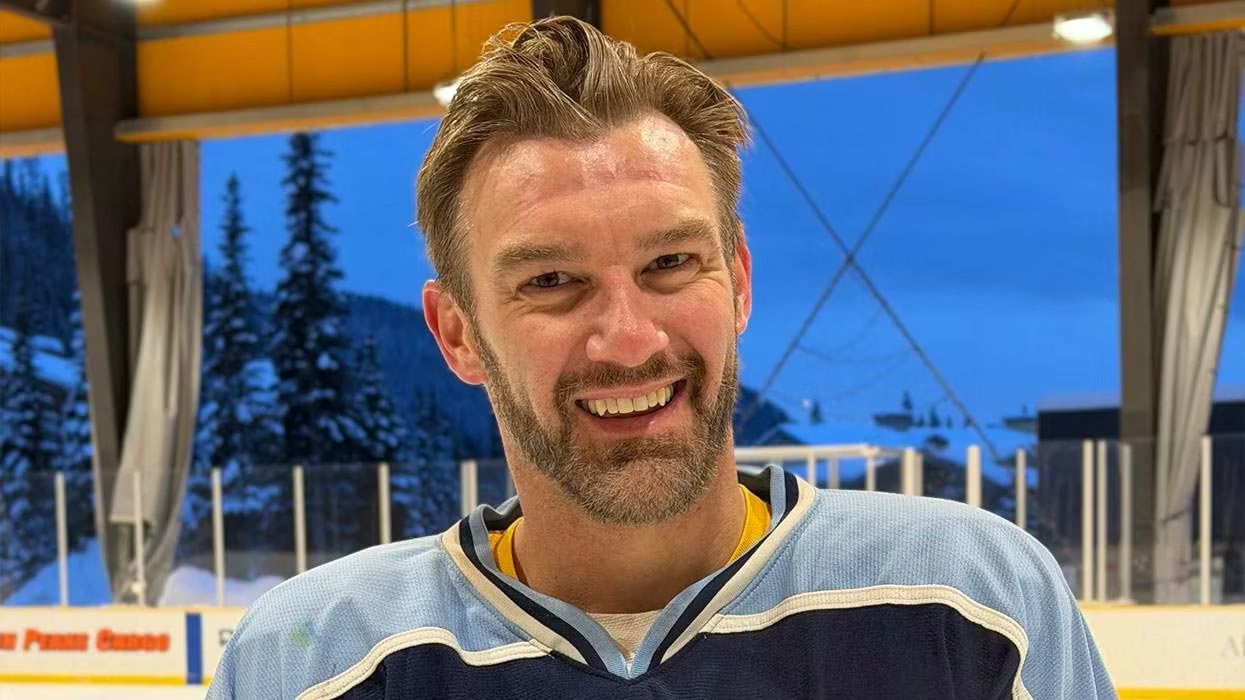
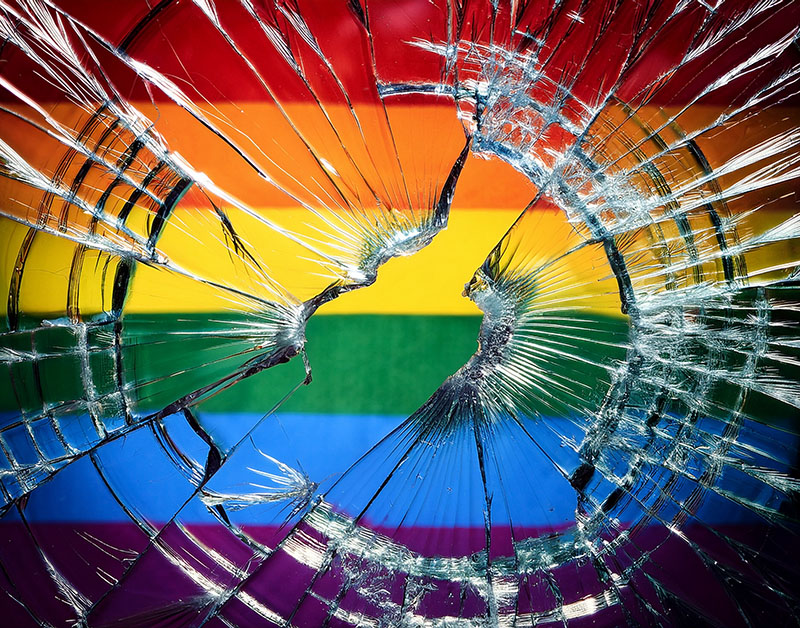
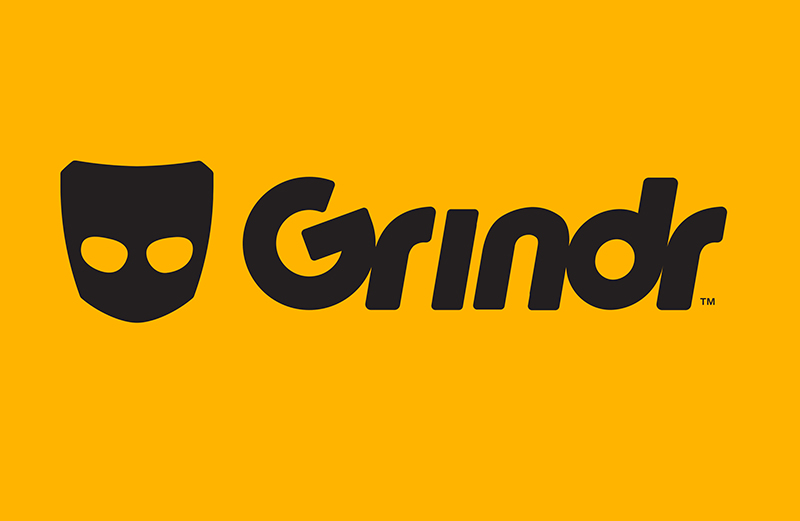












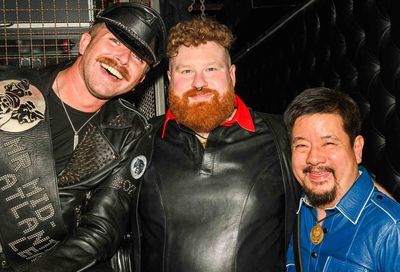
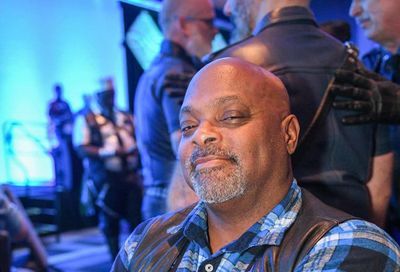
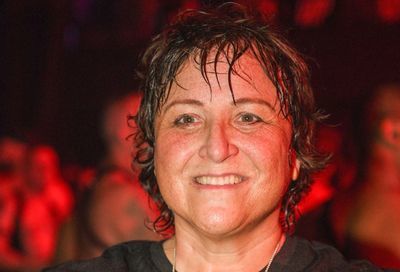
You must be logged in to post a comment.